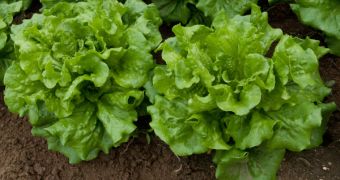We may look down on vegetables these days, seeing how we are surrounded by loads of much more enticing food, but ancient Egyptians valued them above many other things. Especially if they were leafy.
Egyptologist Salima Ikram, now working with the American University of Cairo, explains that ancient Egyptians were quite convinced that leafy vegetables could spice up their love life.
They consumed them not because they were worried about high blood pressure or heart disease, but because they believed they were aphrodisiacs.
By the looks of it, men were the ones who benefited the most from eating leafy vegetables, sources say.
More precisely, it was said that those who consumed lettuce on a fairly regular basis were more fertile and had more stamina than the ones who did not.
To prove the ancient Egyptians really did think of lettuce and other similar vegetables as excellent aphrodisiacs, egyptologist Salima Ikram draws attention to the fact that drawings of these culinary delights appear on several monuments built around 2,000 BC.
Additionally, drawings of lettuce appear next to depictions of Min, who happens to be none other that the Egyptian god of fertility.
Ancient Egyptians referred to Min as a tireless lover, and believed that his endurance was due to the fact that he ate lettuce as often and as much as possible.
“One of the reasons why [the Egyptians] associated the lettuce with Min was because it grows straight and tall,” specialist Salima Ikram reportedly said.
Otherwise put, lettuce used to be regarded as a symbol of masculinity.
Besides eating lettuce as such, ancient Egyptians used to collect the vegetable's seeds and process them in order to obtain a natural oil. This oil was later used for cooking, as medicine and even as a mummification aid.
Salima Ikram explains that lettuce stopped being an aphrodisiac and turned into a salad ingredient around the year AD 85, thanks to the Greeks and the Romans.

 14 DAY TRIAL //
14 DAY TRIAL //